Milyausha Aytuganova: ‘Cinema is not about nationality’
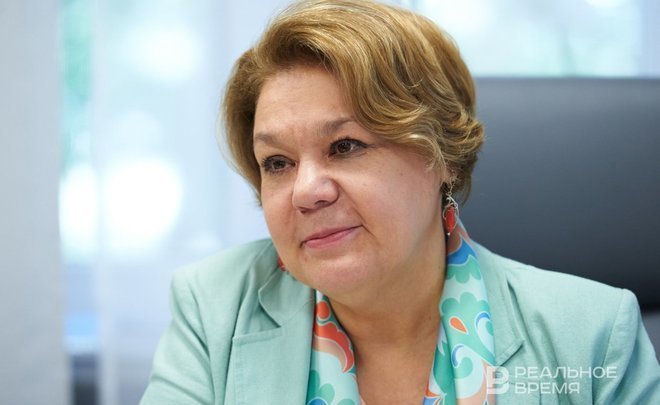
The shortlist of the Kazan Muslim Film Festival 2023 will be published on July 1, which will traditionally be held in the capital of Tatarstan in early September. The acceptance of applications has recently finished, more than 700 have been received in total. How many countries have expressed a desire to participate in the festival, what its peculiarity is this year, whether there are many contenders to win the national competition — director of Tatarkino, state budgetary institution of culture of Tatarstan, Milyausha Aytuganova told Realnoe Vremya.
“Cinema is outside politics”
712 applications from 44 countries have been accepted for participation in the Festival this year. Among them — Pakistan, Kazakhstan, Greece, Turkey, India, Estonia, USA, Canada, Georgia, Belarus, France, Australia, UAE, China, Tunisia, Morocco, Brazil, Great Britain, and many others.
“The geography of the Festival participants has changed this year. Problems arose with companies from Europe. For example, there are some films that are shot in co-production, and they are withdrawing these pictures. It is very difficult to take the rights to the film from them later, because the producers do not allow it. But I think cinema has no politics. I think such a large number of applications is a sign that cinema has no borders. The Kazan Muslim Film Festival has become a window for Islamic countries to Russia and vice versa. The more Kazan, Tatarstan, and our festival is known, the better. We have already established ourselves in the minds of many as the capital of sports. Now we have become a place of unification and dialogue in the field of cinema," Milyausha Aytuganova noted.
Only 50 films will be selected from all applications for the Kazan Muslim Film Festival. The work of the selection committee is now coming to an end. The shortlist is to be published on July 1.
“Nina Kochelyaeva has been the programme director and chairman of the selection committee of our festival for the second year. She is a very well-known film critic, works at VGIK, and heads the Institute of New Culture. In addition to secular representatives of the selection committee, this year representative of the Muslim Spiritual Board of Russia, Rushan Abbyasov, became a member. He will view films for compliance with the festival in terms of content. According to the regulations, films with scenes of sex, violence, extremism, calls for war and so on are not allowed at the Festival," explained the director of Tatarkino.
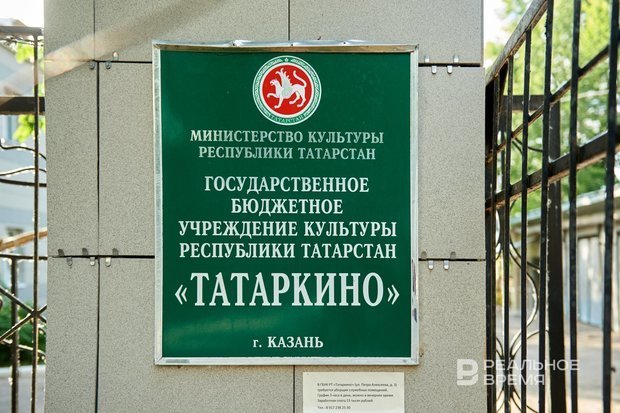
This year, there are some changes regarding the venue of the festival events. The cinema in Korston shopping and recreation centre, where four halls will be involved, and Mir cinema will be chosen as platforms for showing films. The opening ceremony of the Festival this year will be held for the first time at the Kamal Theatre. The closing ceremony will be held in a closed format only for the participants of the festival in the ballroom of Korston.
This year, the organisers are working together with the Directorate of Sports and Social Programmes. The opening and closing ceremony, as well as the organisation of the red carpet, is provided by the directorate. The list of guests and the entire programme of the festival is formed by Tatarkino.
"10-12 films are shot in Tatarstan every year”
It is believed that the modern history of Tatarstan's fiction films began about 15 years ago, when the film Kuktau appeared. Since then, on average, one or two films have appeared every year, and now 10-12 films are being released, Milyausha Aytuganova said, stressing that, despite the difficult geopolitical situation, there is no stagnation in the film industry:
“Any crisis situation is always the heyday of culture. All the most difficult times in history gave birth to geniuses and the strongest and most talented works. Therefore, there are a lot of chances now, especially for people of culture and art. I am absolutely convinced of this, despite that there is no money, there is a crisis. It is during such periods that there are ideas and valuable suggestions from people who, on some intuitive level, deeply feel everything that is happening. We are not having any stagnation at all right now. On the contrary, there is activity. We are shooting a lot. Actually, more films are being made in the Tatar language than ever before.”
We are talking about the total number of films produced. These are not only full-length feature films, but also documentaries, animations, short films, full-length films.
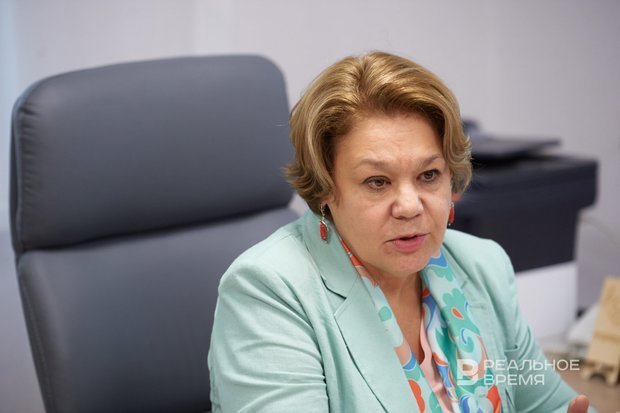
The level of films is growing, and we can safely take them into the programme of national competition. And some even get into international competition
“I also draw a conclusion based on the number of applications for participation in the programme of national competition within the framework of the Muslim film festival. Six years ago, when it first appeared, we barely scored 10 films in different genres. Now we have a serious selection. Now there is an opportunity to choose the best. The programme is composed, among other things, from the works of graduate students. The graduate qualification work is a full-fledged film, despite that it is a short film. The level of films is growing, and we can safely take them into the programme of national competition. And some even get into an international competition. For example, Almaz Nurgaliyev's film, Zhide Utrau Arasynda (Between Seven Islands) was presented in the international competition last year and won it. It's worth a lot. It is worth noting that every year at our festival a prize is awarded to a Tatarstan film. This means that we can compete already at the international level.”
Now several works are being worked on at the same time in Tatarstan. We are talking about the film based on the work of Nurikhan Fattah In May 1941, directed by Alexander Dalmatov. Preparations are also underway to shoot a film based on the work of Ildar Yuzeyev Gashyklar Tavy directed by Salavat Yuzeyev.
“Now we are starting filming, the script is almost ready, we will announce the casting. Also, in parallel with Moscow cinematographers, we are working on the project Telsez Kuke based on the work of Zulfat Khakim. It will be in Russian. Russian director Alexander Garnovsky and the federal team will work on the film. Initially, the director was supposed to be Amir Galiaskarov, but the situation has changed. We can say that this is a co-production, because the Tatarstan side will take part, in particular, our actors will be involved in the film," Milyausha Aytuganova said.
Another film that is already ready to be presented to a wide audience is The 823rd Kilometre. The picture has already been presented in Moscow, where the show symbolically gathered 823 viewers:
“In the production of Tatarstan films, the emphasis is on classics. We have a programme for the preservation and identification of the Tatar people. According to this programme, 4 million 770 rubles are allocated every year for the adaptation of classics. And that's why every year there is a new film based on the work of the Tatar classics. I am an adherent of this idea myself. I have a long-standing dream to make 10 films of classics of Tatar literature. This initial goal is almost achieved. A picture was shot based on the work of Abdurakhman Absalyamov White Flowers, then Unsent Letters by Adel Kutui, then a short-length film by Gayaz Iskaki — Ostazbike, the full-length film Mullah by Tufan Minnullin, We are the Children of 1941, by Mukhammat Magdiev, Tarlan by Galimzyan Ibrahimov Almachuar, Amirkhana Yeniki — The 823rd Kilometre. Now they will shoot the eighth film — Gashyklar Tavy.
The section Online Cinema has been opened on the Tatarkino website, where many films of Tatarstan production are posted. In open access and for free, everyone can watch the films such as Bibinur, Khalima, Sumbul, Apipa, and many others.

I have a long-standing dream to make 10 films of classics of Tatar literature. This initial goal is almost achieved
“The way of regional cinema is to shoot in co-production”
Tatarstan has made two films in co-production. These are Sumbul — a joint production with Uzbekistan, and Tarlan — a co-production with Kazakhstan.
“Tarlan is a family film. It gained a lot of popularity, won prizes at many film festivals. The last award is the prize of the Buryat Festival. In parallel, we distributed in Tatarstan. Kazakhstan is currently preparing for distribution, in addition, this film has been taken by distributors in Turkey. Now we see the results of the international pitching, which has been taking place for 3 years within the framework of the Festival. That's why we have international projects, which is very cool. The only way for regional cinema today is to shoot in co-production," the head of Tatarkino believes.
The organisation had plans to create a joint project with Turkey — to make a film based on the work of Makhmut Galyau Mud. Mukhadzhirs. But at the last moment, Turkey did not invest in the project, and therefore, Tatarstan shot the film with Bashkortostan, filming was conducted on the territory of the neighbouring republic. Since there was no further investment, the film became educational with game elements, that is, the format changed. Instead of a large artistic historical canvas, it turned out to be an educational picture. “But Turkey does not abandon the desire to revive this project. They are making their own script for the work of Makhmut Galyau. They wanted to do this initially. They considered that this story is not local, not only Tatar, but world-wide. There are a lot of migrants in the world. This is a very expensive project, if we had completed it, it would have been a blockbuster," Milyausha Aytuganova is sure.
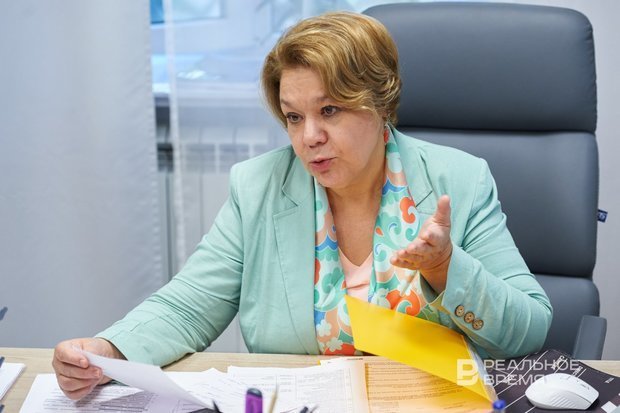
We had a period when cinemas died, and now there is a big serious process of resuscitation of cinema chain
“There are 180 film screening points in Tatarstan”
Tatarstan films are distributed in the republic in cities and districts. Now there is a large network of cinemas and halls in Tatarstan. Currently, there are 14 separate film institutions that have an independent legal status, 180 screening points. These are the Mir cinema in Kazan, 32 municipal digital cinemas, 14 cinemas that operate in DVD format, 133 digital private cinemas, including 26 private cinemas in cities and districts of the Republic of Tatarstan. The gross collection of the cinema network is about 32 million rubles, said the director of Tatarkino:
“Now there is a large programme of digitalisation of cinema halls in Russia. All municipal cinemas, and there are a lot of them, are being modernised at the expense of the Cinema Foundation. For three years in a row, this amount was 5 million rubles, now it is 9 million. The allocated funds are used to buy equipment and modernise old halls. We had a period when cinemas died, and now there is a big serious process of resuscitation of cinema chain. In Russia, thanks to the programme of the Cinema Foundation, the number of cinemas with good digital equipment has already exceeded 5 thousand.
However, according to Milyausha Aytuganova, commercial cinemas are reluctant to rent Tatarstan films:
“Federal distributors rarely take regional films. But now there is a very large shortage of the product. There are few good Russian films. Therefore, the feds began to pay attention to the regional product. Admittedly, regional cinema is developing well only in a few places in Russia — Yakutia, which is a favourite, Tatarstan, Bashkortostan, Buryatia. It is too early to talk about the successful distribution of Tatarstan cinema. Distribution is primarily a business, but regional cinema is not.”

Federal distributors rarely take regional films. But now there is a very large shortage of the product. There are few good Russian films
“The debate over what national cinema should be is not abating”
“If we follow the logic, then we need to make films that are interesting to the whole world, and not just Tatars. In my opinion, if a film story is interesting in Singapore or Senegal, in Europe, in Russia — anywhere, then we've hit the nail on the head. After all, cinema is not about nationality," the interlocutor of the publication believes.
When it comes to the development of national cinema, opinions are divided into two different poles. These disputes are going on in all national regions, explained Aytuganova:
“Two camps are arguing. Some say that films should be exclusively in the national language with national traditions, while preserving all national attributes. Nationally oriented people say that it is necessary to make historical films in their own language not to lose their identity. Others believe that it is necessary to make films in Russian, since it is a Russian film and actively go to the Russian distribution. I believe that if we have national films, we should stick to the path that many have followed. We should make films in Tatar, Russian, English, and in the languages of the countries where we want to promote. That is, I am in favour of the national cinema expanding its audience at the expense of language and territories.”
According to her, the Tatars have criticism as a national treasure, and this is not a disadvantage: “We have surpassed everyone in this matter. We know how to do it with unsurpassed skills. We also have a part of the intelligentsia, who is in favour of creating a purely Tatar cinema. But we must understand that Tatar cinema alone cannot promote Tatarstan cinema beyond the borders of Tatarstan. We cannot work only in the republic. It is necessary to go beyond it. To go beyond, we need to make a good quality product and make it in different languages so that everyone understands it, not only Tatars. But at the same time, any Tatar, sitting in his neighbourhood, could be proud, for example, oh, a Tatar film goes to Cannes! And that requires money.”
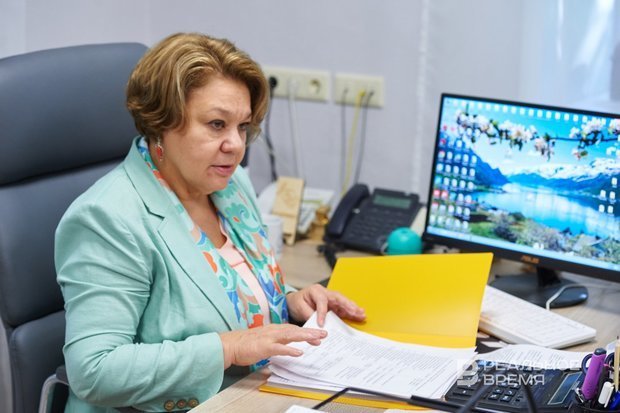
I believe that if we have national films, we should stick to the path that many have followed. We should make films in Tatar, Russian, English, and in the languages of the countries where we want to promote.
“Tatarstan Cinema Fund is needed”
The cultural development programme has now been extended until 2024. It has a subprogramme — the development and preservation of national cinema:
“There is a programme, in fact. There is money allocated specifically for the development of cinema. It includes everything: rental, festivals, and cinema. It is clear that these are not the volumes that our filmmakers would like. In a year, according to various articles, if taken together, about 100 million rubles are collected. This is not a small amount, but it is distributed for different purposes. We are now talking about that a Cinema Fund should be created. Such as in Moscow and other regions (for example, such fund now exists in Yakutia and Bashkortostan). This is a fund that can distribute subsidies on a competitive basis, as the Ministry of Culture of Russia does, only at the regional level. This is what we are talking about now.”
Milyausha Aytuganova admitted that now there is a fragmentation of cinematographers:
“Therefore, we and the Union of Cinematographers say and insist on this and ask the government to resolve the issue. The Cinema Fund is necessary so that people do not go alone to the Tatarstan rais or the minister of culture. Now everyone goes and asks, and who got there faster, they got the money for the film. All this should be systematised. The Cinema Fund can be created under the Ministry of Culture of the Republic of Tatarstan or it can be a separate structure. The cinema development programme ends next year. A new programme is currently being developed. We want to make changes to the version. The Cinema Fund can accumulate various funds, not necessarily only state funds. Here we are talking about impressive sums. At least 100 million rubles a year are needed for film production in Tatarstan.”
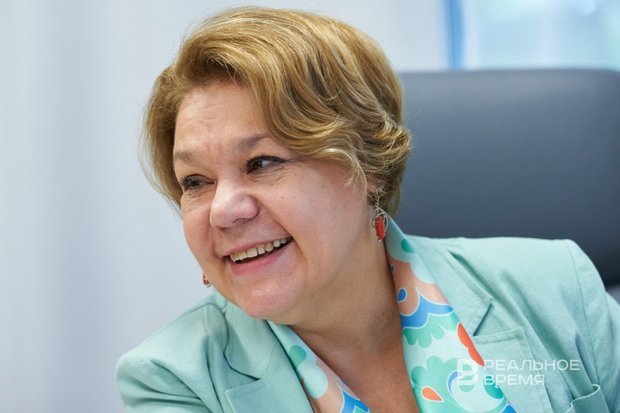
If the infrastructure is better designed every year, none of the young talented specialists will leave. After all, what is film industry? This is when you constantly have a job and do not live from project to project
“A film cluster instead of a film studio”
For many years, cinematographers have been asking to create a film studio where filming could be carried out. It was even proposed to use the Kazan Expo site for this:
“To build a pavilion in the form in which we present it, like Mosfilm, Lenfilm and so on, is a lot of money and it will not pay off. I am in favour of developing a regional film cluster today. I stand more on the side of post-production development. This means that it is necessary to develop specialties and sites in the region where it would be possible not to shoot a film, but to engage in editing, colour correction, graphics, animation, etc. We have enough such specialists now. And they would now be united into some kind of one space, and not as they now work in small firms. Then such a story would attract attention to our region, and we could become a platform where all these specialties are intensively developing. So that anyone from anywhere in the world could order a service in Tatarstan. Post-production is not tied to location, it can be done online. Many now do so. Colour correction is ordered in one region, graphics in another, etc.”
According to Milyausha Aytuganova, for example, for the film The 823rd Kilometre, they ordered to draw a military ambulance train, because it simply does not exist in nature: “It was drawn by guys from Almetyevsk, Dalina.graphics company, which work as far as for Hollywood. We have great specialists. There are also professional animators. This industry is developing very quickly. I see that we have potential here. It seems to me that the government or investors are unlikely to decide to build a film studio now.”
The language of cinema is universal, the director of Tatarkino believes. This is an absolutely barrier-free art form. The better the film, the more people will watch it and the more people will know that it was made in Tatarstan:
“If the infrastructure is better designed every year, none of the young talented specialists will leave. After all, what is film industry? This is when you constantly have a job and do not live from project to project. The work should be continious. This is why we need a system so that film production does not stop in the republic.”